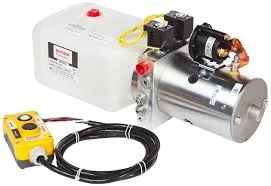Nov . 07, 2024 06:57 Back to list
Innovative Mechanical Hydraulic Cylinder Solutions for Enhanced Performance and Efficiency
The Essential Role of Mechanical Hydraulic Cylinder Products in Modern Industries
In the realm of modern engineering and industrial applications, the significance of mechanical hydraulic cylinder products cannot be overstated. These cylinders are pivotal components in various machinery, providing the ability to convert hydraulic energy into mechanical energy. Widely used across multiple sectors, including manufacturing, construction, automotive, and aerospace, hydraulic cylinders play an integral role in enhancing the efficiency and effectiveness of operations.
Understanding Hydraulic Cylinders
At their core, hydraulic cylinders consist of a cylinder barrel, a piston, and hydraulic fluid. When pressurized hydraulic fluid enters the cylinder, it pushes the piston, resulting in linear motion. This motion can then be harnessed to perform a multitude of tasks, from lifting heavy loads to steering vehicles. Such versatility makes hydraulic cylinders indispensable in settings where strength and precision are paramount.
Types of Hydraulic Cylinders
There are several types of hydraulic cylinders catered to specific applications, including
1. Single-Acting Cylinders These cylinders use hydraulic pressure to move the piston in one direction and rely on a spring or other mechanisms for return. They are widely used in applications requiring effective lifting and dropping functions.
2. Double-Acting Cylinders Unlike single-acting cylinders, double-acting cylinders can utilize hydraulic pressure on both sides of the piston, allowing for more complex movement and control. These are prevalent in construction equipment such as excavators and cranes.
3. Rodless Cylinders These systems operate without a piston rod, allowing for more compact designs in applications where space is limited. Rodless cylinders are often found in manufacturing automation systems.
4. Telescoping Cylinders Comprising multiple sections, telescoping cylinders extend further than standard cylinders and are ideal for applications requiring long strokes within a confined space, such as in dump trucks and aerial work platforms.
Applications in Various Industries
The applications of hydraulic cylinders are vast, as they can be found in various industries
mechanical hydraulic cylinder products

- Construction Hydraulic cylinders are foundational in heavy machinery like diggers, loaders, and cranes
. They enable the lifting and manipulation of enormous materials, ensuring construction projects can be completed more efficiently.- Manufacturing In manufacturing settings, hydraulic cylinders are employed in presses, injection molding machines, and assembly systems. Their ability to apply substantial force rapidly allows for streamlined production processes.
- Automotive Hydraulic cylinders are crucial in automotive repair and assembly lines. They facilitate the lifting of vehicles for maintenance and can be found in brake systems and power steering apparatus.
- Aerospace In the aerospace sector, precision and reliability are non-negotiable. Hydraulic cylinders are used to operate landing gear and control surfaces, functioning under extreme conditions while maintaining performance and safety.
Benefits of Hydraulic Cylinders
The advantages of using mechanical hydraulic cylinder products include
1. High Power-to-Weight Ratio Hydraulic systems deliver a high level of force relative to their size, making them ideal for applications where space is at a premium but high power is required.
2. Smooth Operation The operation of hydraulic cylinders is generally smoother and quieter compared to mechanical systems, which can enhance the working environment.
3. Programmable Control Modern hydraulic cylinders can be integrated with computer systems for precision control, allowing for automation and improved production lines.
4. Durability Hydraulic cylinders are built to withstand harsh environments, ensuring long service life with minimal maintenance needs.
Conclusion
In conclusion, mechanical hydraulic cylinder products are foundational to modern engineering and industrial operations. Their versatility, efficiency, and ability to handle challenging tasks make them an invaluable resource across various sectors. As technology advances, the design and functionality of these cylinders are expected to evolve further, leading to even greater applications and enhancements in performance. As industries strive for automation and greater productivity, the role of hydraulic cylinders will undoubtedly expand, setting the stage for innovative solutions in the future.
-
Fork Lift Power Units - Hebei Shenghan | Efficiency, Reliability
NewsJul.13,2025
-
1.5-Ton Turbocharged Cylinder-Hebei Shenghan|Hydraulic Solution,Energy Efficiency
NewsJul.13,2025
-
Auto Hoist Power Units-Hebei Shenghan|Efficiency&Industrial Lifting
NewsJul.13,2025
-
Double Acting Power Units-Hebei Shenghan|Hydraulic Solutions,Industrial Efficiency
NewsJul.13,2025
-
1.5 Ton Lifting Cylinder 70/82-40-290-535 - High-Performance Hydraulic Solution | Hebei Shenghan
NewsJul.13,2025
-
Fork Lift Power Units - Hebei Shenghan | Efficiency&Reliability
NewsJul.13,2025
